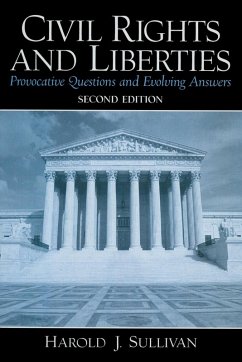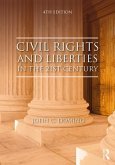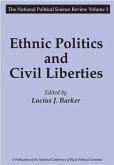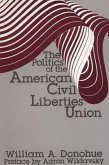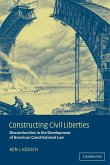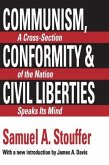For undergraduate courses in Constitutional Law, Civil Rights & Liberties, Introduction to American Politics, Introduction to Law and Legal Process, and Judicial Process & Politics. Examining contemporary and perennial constitutional issues in civil liberties and rights, this text engages students in an exploration of how and why U.S. Supreme Court Justices have interpreted the provisions of the U.S. Constitution relating to freedom of expression and religion, and equal protection and privacy. Questions are posed, and each is followed by an essay answer that examines, in a thought-provoking manner, the variety of ways the Justices have responded in real cases. This second edition brings the book up-to-date with coverage of recent Court decisions relating to homosexual privacy rights, affirmative action and racial diversity, free speech and cross-burning, pornography over the internet, and the school voucher/religious freedom debate.
Features + Benefits
NEW - Up-to-date coverage of issues-Incorporates the latest Supreme Court decisions through 2003, relating to homosexual privacy rights (Texas v. Lawrence); affirmative action and racial diversity (Gratz v. Bollinger, Grutter v. Bollinger); free speech and cross-burning (Va. v. Black); and pornography over the internet (United States v. American Library Association).
Provides students with the most up-to-date and topical coverage available on these legal issues.
NEW - Exploration of Bush's "Faith-Based Initiatives"-Includes the recent school voucher/religious freedom case (Zelman v. Simmons-Harris).
Examines for students the implications of recent cases on current law and public opinion.
NEW - Revised Chapter 5-Updates coverage of homosexual rights, reproductive freedom, and physician assisted suicide.
Asks students to think about hot issues, such as "right to privacy" as opposed to "right to life."
NEW - Emerging issues in civil rights and liberties-Includes the impact of economic inequalities; the implications of the Internet; and the potential impact of "privatization" of government services.
Keeps students' interest, and stimulates thought about trends, events, and developments that may affect their lives.
Question and answer format-Consists of brief, to-the-point questions, and in-depth, several-page answers.
Starts students thinking about the issues before they come to class, and prepares them for lively debate.
Flexible organization of topics-Allows each "question and answer" to stand on its own.
Enables instructors to include and discard specific material without jeopardizing the coherence of the presentation.
(NOTE: Each chapter contains an Introduction and References.)
Preface.
1. Introduction: Judicial Defense of Civil Liberties and Civil Rights.
2. The First Amendment and Freedom of Expression.
3. Freedom of Religion.
4. Equality Under the Constitution.
5. Privacy and Individual Autonomy.
6. Contemporary Issues of Equality and Freedom.
7. Conclusion: What Is the Future of Constitutional Rights and Civil Liberties in America?
Appendix: The Constitution of the United States.
Index.
Hinweis: Dieser Artikel kann nur an eine deutsche Lieferadresse ausgeliefert werden.
Features + Benefits
NEW - Up-to-date coverage of issues-Incorporates the latest Supreme Court decisions through 2003, relating to homosexual privacy rights (Texas v. Lawrence); affirmative action and racial diversity (Gratz v. Bollinger, Grutter v. Bollinger); free speech and cross-burning (Va. v. Black); and pornography over the internet (United States v. American Library Association).
Provides students with the most up-to-date and topical coverage available on these legal issues.
NEW - Exploration of Bush's "Faith-Based Initiatives"-Includes the recent school voucher/religious freedom case (Zelman v. Simmons-Harris).
Examines for students the implications of recent cases on current law and public opinion.
NEW - Revised Chapter 5-Updates coverage of homosexual rights, reproductive freedom, and physician assisted suicide.
Asks students to think about hot issues, such as "right to privacy" as opposed to "right to life."
NEW - Emerging issues in civil rights and liberties-Includes the impact of economic inequalities; the implications of the Internet; and the potential impact of "privatization" of government services.
Keeps students' interest, and stimulates thought about trends, events, and developments that may affect their lives.
Question and answer format-Consists of brief, to-the-point questions, and in-depth, several-page answers.
Starts students thinking about the issues before they come to class, and prepares them for lively debate.
Flexible organization of topics-Allows each "question and answer" to stand on its own.
Enables instructors to include and discard specific material without jeopardizing the coherence of the presentation.
(NOTE: Each chapter contains an Introduction and References.)
Preface.
1. Introduction: Judicial Defense of Civil Liberties and Civil Rights.
2. The First Amendment and Freedom of Expression.
3. Freedom of Religion.
4. Equality Under the Constitution.
5. Privacy and Individual Autonomy.
6. Contemporary Issues of Equality and Freedom.
7. Conclusion: What Is the Future of Constitutional Rights and Civil Liberties in America?
Appendix: The Constitution of the United States.
Index.
Hinweis: Dieser Artikel kann nur an eine deutsche Lieferadresse ausgeliefert werden.

